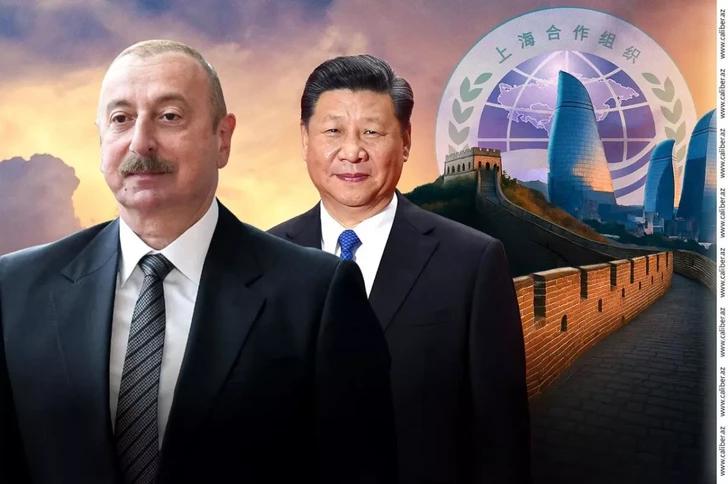Baku, September 3
The Shanghai Cooperation Organization (SCO) may not carry the weight of NATO or the European Union, but its steady rise makes it impossible to ignore. With 40 percent of the world’s population, a quarter of global GDP, and heavyweight members such as China, Russia, and India, the bloc has evolved from a regional security forum into a platform of economic and political influence, according to Caliber.Az.
For Azerbaijan, a dialogue partner since 2015, participation has opened doors to new markets, infrastructure deals, and diplomatic visibility. President Ilham Aliyev’s consistent presence at SCO summits — from Samarkand to Astana, and most recently Tianjin — signals Baku’s intention to stay in the room where Eurasian strategies are shaped.
Yet this expanding role comes with both opportunities and risks.
On the opportunity side, China looms large. Its Belt and Road Initiative relies on secure east–west corridors, and Azerbaijan’s geography places it at the center of these routes. Investments in rail, ports, and pipelines have already made Baku a critical transit hub. Engagement with Beijing offers the prospect of deeper trade integration, technology transfer, and infrastructure funding at a moment when global supply chains are shifting.
Cultural and soft-power ties have also grown. Azerbaijan’s trade house in Qingdao and cultural diplomacy — from Nizami Ganjavi commemorations in Beijing to exhibitions under the Heydar Aliyev Foundation — illustrate how Baku uses the SCO framework to blend economics with cultural outreach.
But the risks are just as real. Aligning too closely with an organization where Russia and China dominate raises questions about balance. Russia’s weakened position after its war in Ukraine has made it more dependent on China, and the SCO reflects this uneasy partnership. For Azerbaijan, whose energy exports remain tied to European markets and whose foreign policy emphasizes multi-vector pragmatism, overcommitment could complicate relations with the West.
Equally, the SCO is not a cohesive bloc. Rivalries among members — from India and Pakistan to differing priorities between Moscow and Beijing — mean that its grand declarations often outpace practical results. For Azerbaijan, the challenge is to extract tangible economic and diplomatic benefits without being drawn into geopolitical rivalries that do not serve its core interests.
The Tianjin summit highlighted these dynamics. Energy, transport, and climate were on the agenda, and Azerbaijan was visible. But participation in such clubs is not only about presence — it is about positioning. The real test will be whether Baku can use the SCO to advance its infrastructure and trade agenda while maintaining its delicate balance between East and West.
Azerbaijan’s SCO strategy, then, is best understood not as a pivot but as a hedge. In a world where global alignments are shifting, Baku is betting that sitting at multiple tables — Brussels, Ankara, Moscow, Beijing — is safer than choosing just one. The question is how long that balancing act can hold.


